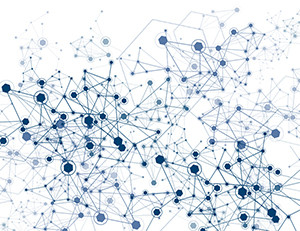
The Center uses network development as a key strategy for advancing our theory of change, as well as an indicator of full participation. These networks involve collaborations among multi-faceted transformative leaders to identify and address shared visions, challenges and commitments and to produce concrete impact in institutions and communities while generating significant learning and research that can be applied broadly.
THE REENTRY EDUCATION NETWORK
The Reentry Education Network is a consortium of New York City based community based organizations, government agencies, and higher education representatives dedicated to increasing access and success of formerly incarcerated individuals to education and shifting public policies and priorities from incarceration to education. The Center is working with the Reentry Education Network to explore the network’s capacity and potential for collective impact.
Imagining America
Imagining America is a consortium of universities and organizations dedicated to advancing the public and civic purposes of humanities, arts, and design. Its mission is to realize the democratic, public, and civic purposes of American higher education. The Center is working with IA to develop local, regional and national collaborations that facilitate the relationship between (1) undertaking public scholarship that addresses pressing community concerns and (2) building an inclusive university, a dual agenda of “institutional citizenship.”
Liberal Arts Diversity Officers (LADO)
The Liberal Arts Diversity Officers is a consortium of 24 liberal arts colleges that have come together to build their institutional and collective capacity to build campuses that include diverse groups and that create environments that enable those groups to succeed, thrive, and contribute fully to their communities. The Center works with LADO to enable members to pool their knowledge, create occasions for meaningful collaboration, and cultivate the network’s transformative potential.
Transformative Leadership For Social Justice Working Group
The Transformative Leadership for Social Justice Working Group was created under the umbrella of the Ford Foundation’s Building Knowledge for Social Justice Project. The TLWG brings together higher education and community leaders with a track record of successful and innovative transformative leadership development work related to social justice concerns. The Foundation charged the TLWG with examining how and where leadership can be developed in key institutions that must address and try to reverse inequality It has convened a group of leadership from higher education.
The Working Group consists of the following participants:
- Susan Sturm, Co-Chair
- Nancy Cantor, Co-Chair, Chancellor, Syracuse University
- Shirley Collado, Dean of the College and Chief Diversity Offficer, Middlebury College
- Mildred Garcia, President, California State University, Dominguez Hills
- Richard Gray, Co-Director, Community Organizing and Engagement, Annenberg Institute for School Reform, Brown University
- Freeman Hrabowski, President, University of Maryland, Baltimore County
- Rakesh Khurana, Marvin Bower Professor of Leadership Development, Harvard Business School
- Nicholas Lemann, Dean and Henry R. Luce Professor, Columbia University Graduate School of Journalism
- Earl Lewis, Provost and Executive Vice President for Academic Affairs, Emory University
- Martha Minow, Dean and Jeremiah Smith, Jr. Professor of Law, Harvard Law School
- Robert Moses, President, Founder of The Algebra Project, Inc.
- George Sanchez,Vice Dean of Diversity and Strategic Initiatives, USC Dornsife College of Letters, Arts, and Sciences
- Ellen Schall, Dean and Martin Cherkasky Professor of Health Policy and Management, Robert F. Wagner Graduate School of Public Service, New York University
- Abby Stewart, Associate Dean for Academic Programs and Initiatives; Sandra Schwartz Tangri Distinguished University Professor of Psychology and Women's Studies, College of Literature, Science and the Arts; Director of the ADVANCE program, Rackham Graduate School, University of Michigan
- Beverly Daniels Tatum, President, Spelman College
The American Commonwealth Project: Colleges And Universities As Agents And Architects Of Democracy
The American Commonwealth Project (ACP) was initiated on September 7, 2011, by a group of higher education and civic leaders, in collaboration with the Department of Education (DoED) and the White House Office of Public Engagement (OPE). In a time of crisis in our national democracy, we are committed to the proposition that higher education is a public good in multiple ways which need recognition and strengthening. ACP aims to move civic learning and engagement to an ethos and identity of civic learning and democratic engagement, not simply civic activities. ACP will take advantage of the celebrations planned for 2012, the 150th anniversary year of the Morrill Act creating land grant colleges and universities – once known as “democracy colleges” -- to stimulate a vigorous national conversation on the ways in which higher education is a public good, contributing to a democratic commonwealth. The Center’s leadership is on the strategic planning committee of the American Commonwealth Project.
Lawyers And Transformative Leadership Network
The Center is developing a network of students, alumni, and lawyers who are using their legal education as a jumping off point for advancing full participation in their work. This network makes visible the narratives and strategies of these innovative lawyers involved in social change, develops curricula and educational programs aimed at building the capacity for transformative leadership, and creates opportunities to cultivate lawyers’ involvement in transformative leadership.
